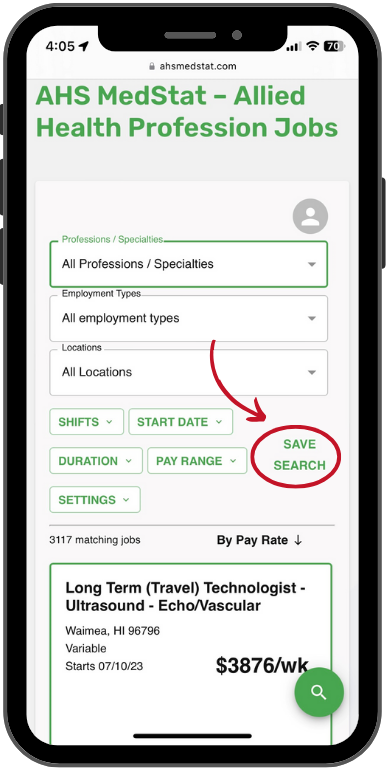By now, we’re all acutely aware that the housing bubble burst a few years ago. Home values had appreciated at rates which could not be sustained forever. If you add sub prime and adjustable rate lending to declining home values you have the “perfect storm” for foreclosure rates at an all time high.
Even with high paying nursing jobs, nurses are not exempt from the prospects of loan default and foreclosure in these trying economic times. It is now estimated that 3% of all mortgages in the USA are at or near the point of foreclosure.
The average home loan default goes something like this:
Homebuyer Nancy Nurse bought a house in 2002 when home prices were peaking – let’s say she paid $300,000.00 for the home. She borrowed 80% of the value or $240,000.00. She got an adjustable mortgage which adjusted last year (2007). It adjusted upward and her payment went up $500/month. She tried to refinance her mortgage, but her home was only worth $220,000 and she owed $225,000.00. Even if the bank would refinance, she is under the 80% loan to value and she would be stuck paying primary mortgage insurance (PMI) – so any money she saved in the refinance would be eaten up with PMI.
The price of gas for her SUV has been killing her. Her kid’s college tuition went up 8% last year and she took that money from her savings. Any money she had in her 401K is worth 40% less than it was last year. And her husband just got laid off. Sound familiar?
Now What?
Nancy is in trouble. She started making late payments on her home and she got hit with big late fees until she eventually fell a few payments behind. There is blood in the water and the sharks are circling. Nancy needs to take action – quickly.
Nancy’s bank is the place for her to start. Banks and Mortgage Companies have all recently expanded their “loss mitigation” departments. The guidelines that banks use to possibly “re-work” her loan are evolving daily. The basic theories behind what they’re trying to do are simple. They know that if they have to foreclose on Nancy, then they will be stuck trying to sell her house. There are 25 other homes in Nancy’s subdivision which are being listed at “distressed” prices. Most likely, they will have to sell Nancy’s house at an auction. Someone will buy it “on the cheap” and the bank will have to write off the difference – sometimes as much as $100,000. Nancy will have no choice but to file bankruptcy and the bank will lose.
The banks are becoming more and more motivated to work with Nancy. If they can get her into a refinance situation with a reasonable fixed interest rate at say $190,000.00 and if they can waive PMI, suddenly Nancy doesn’t think bankruptcy is her best option. The bank loses maybe $35,000 in the process, but they stand to lose 3 times that amount if the property goes to auction and Nancy files bankruptcy. Nancy survives and the bank loses less.
That type of loss has been discussed as a partial use of some of the TARP bailout. Banks have broad discretion in using those funds. The question has been posed “why did the government help out banks and not people in mortgage trouble?”. The answer is that by helping banks – they are helping people in mortgage trouble. No government agency could design a mortgage assistance package that would be “one size fits all”. Hence, they gave money to the banks and gave them broad discretion for its use.
Also, banks are trying to implement rules where they get their loss write-off back if Nancy ever sells her house. For example, if Nancy stays in her house another 10 years and sells it for $300,000, the bank would be in line to get their $35,000 off the top. You might recall that part of the $700 Billion TARP package was that if banks profited or got the money back – that money goes back to the government.
Beware of Predators
Because of this sudden spike in foreclosures, you’re starting to see a new industry develop. There are large numbers of companies out there who are claiming to be able to get you out from under a foreclosure situation. Many of them are legitimate and will work for your benefit. Some are not.
Anytime there is a crisis of this scope, there are going to be opportunists looking to make a profit from your misery. There are a large number of “foreclosure scams” out there, so make sure you do your homework.
I found this site to be an excellent resource for information and referrals to legitimate help.
Don’t Lose The Lesson
There are now hundreds of thousands of people across the USA who have been faced with foreclosure in these past few years. A wise person once said, “when you lose, don’t lose the lesson”. The lesson here is simple. Adjustable Rate Mortgages have a huge potential downside. Don’t expose yourself to huge risk to wedge yourself into a house that you really can’t afford.
If you can’t live with the worst possible outcome, don’t do the deal.

